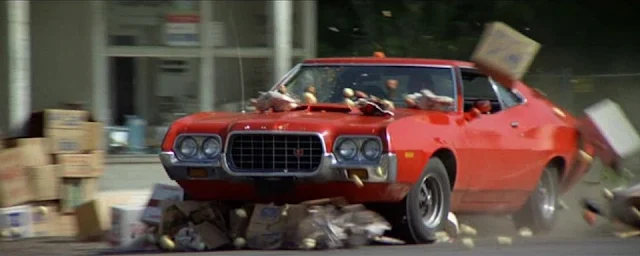 |
| Martin Donovan and Elina Löwensohn in Amateur |
Cast: Isabelle Huppert, Martin Donovan, Elina Löwensohn, Damian Young, Chuck Montgomery, Dave Simonds. Screenplay: Hal Hartley. Cinematography: Michael Spiller. Production design: Steve Rosenzweig. Film editing: Steve Hamilton. Music: Hal Hartley, Jeffrey Taylor.
The protagonists of Hal Hartley's movies invariably have a secret past. The problem with Thomas (Martin Donovan) is that he isn't in on the secret. When we first see him he is lying on the cobblestones of an alley in New York City. Is he dead? That's the conclusion reached by the young woman who peers into the alley and cautiously approaches the body, extends a foot to prod it, and then inspects more closely. Then she disappears. She is Sofia Ludens (Elina Löwensohn), a porn star who thinks she has killed Thomas. After she's gone, he will awake with a start, pick himself up, and stagger out into the streets and into a cafe, where he meets Isabelle (Isabelle Huppert), a former nun who writes pornographic stories for a living. He tells her he doesn't know who he is, that his past and even his name is a complete blank. So they set out together to solve the puzzle. And so goes the setup for Hartley's excursion into the tropes (not to say clichés) of the crime thriller. In addition to amnesia, there's also an international conspiracy of some sort, and even a MacGuffin: some floppy disks (which we are twice reminded, as we were so frequently in the early 1990s when they were a thing, are neither floppy nor disks) that contain shocking secrets. Thomas and Isabelle will team up with Sofia -- reluctantly on her part, since she was the one who had reason to try to kill him -- and go on the run from some hit men working for a crime boss who used to be Thomas's employer. Played straight, the story might be entertaining enough, but of course Hartley never plays anything straight. The performances are good, given that everyone has to work in Hartley's deadpan mode. Huppert slips with apparent ease into the punch-drunk milieu of his films, but she has already proved that she can play almost anything. The supporting cast is filled out with some now-familiar faces like Michael Imperioli, Parker Posey, and Tim Blake Nelson in bit parts. Amateur never transcends spoofery into significance, but why ask for that anyway?








